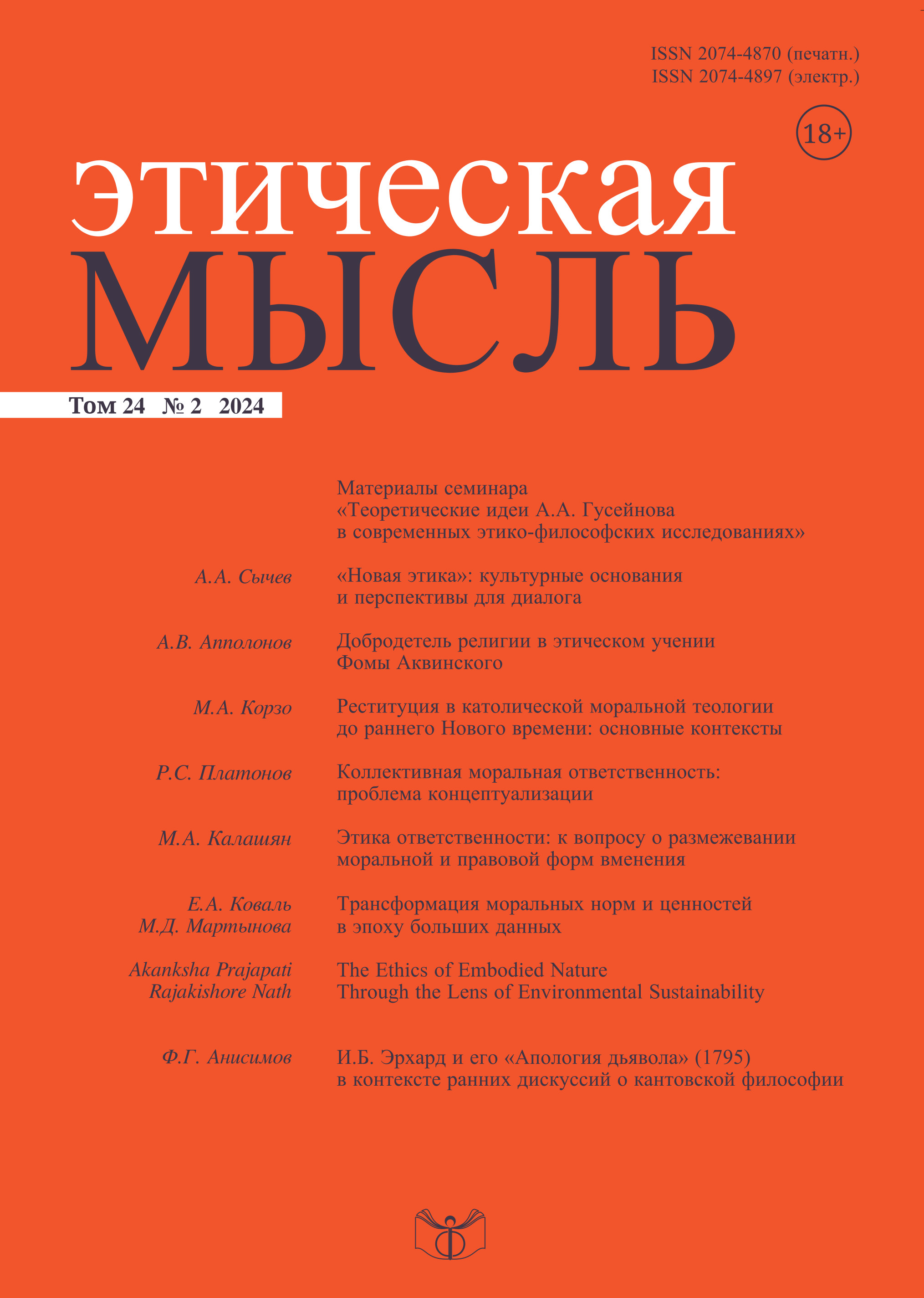J.B. Erhard and His “Devil’s Apology” (1795) in the Context of Early Discussions about Kantian Philosophy
DOI:
https://doi.org/10.21146/2074-4870-2024-24-2-138-149Keywords:
J.B. Erhard, I. Kant, J.G. Fichte, morality, law, devil, evilAbstract
The philosopher and physician Johann Benjamin Erhard (1766–1827) is a relatively little-studied, but very remarkable figure in the history of post-Kantian German thought. The peak of his creative activity occurred in the last decade of the 18th century – a time of heated discussions around the philosophy of I. Kant, when a number of thinkers, who appreciated the nature of the transformations he carried out, tried to continue his undertaking, challenging the positions of philosophical opponents. Developing some of his claims and moving away from others, they often found themselves in ideological confrontation both with Kant himself and with other Kantians. Along with K.L. Reingold, S. Maimon, J.G. Fichte, T. Schmaltz, L.H. Jacob, C.Chr.E. Schmid and other influential successors (and at the same time critics) of Kantian philosophy, J.B. Erhard was in the thick of these discussions, the course of which is reflected in one of his main works, “Devil’s Apology” (1795). This article, which represents a preface to the translation of this work into Russian, will examine its main within the framework of a number of philosophical problems and disagreements that were of key importance at the dawn of the development of one of the most important traditions of European philosophy – German idealism. Particular attention within the framework of the article will be paid to the position of the personality of Erhard himself in the philosophical context of his time; in particular, his personal contacts with famous contemporaries.









